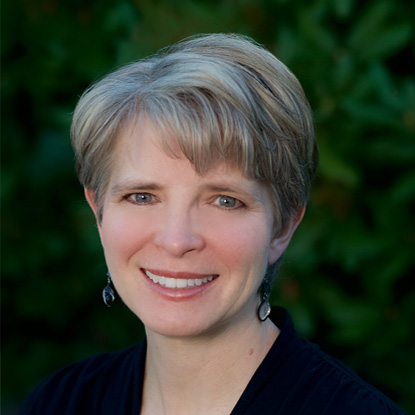Restoration Ecology - Invasion Biology - Plant-Fungi Interactions – Native Plant Propagation
My fascination with biology stems from both my personal curiosity and my desire to assist students in comprehending biology not merely through rote memorization but by putting together the pieces for themselves—let's call it "thinking biology!"
My research focuses on restoration ecology and plant invasion biology from a community ecology perspective. For instance, I investigate the interplay between fungi and plants, examining how beneficial fungi may promote plant establishment and enhance survival in habitat restoration projects following wildfires. Additionally, I explore the possible role that fungal pathogens can play in controlling invasive plant species. I’ve explored these topics in a wide range of communities, including tropical rainforests, deciduous forests, coastal dunes, sagebrush communities, prairies, and grasslands. At present, my aim is to advance restoration efforts by uncovering microbial tools and other factors that enhance seedling establishment.
Peer-Reviewed Book Chapters:
Meyer, SE, J. Beckstead, and J Franke. 2016. Community Ecology of Fungal Pathogens on
Bromus tectorum. Pages 193-223. In M. Germino, J. Chambers, and C. Brown, editors. Exotic brome grasses in arid and semi-arid ecosystems of the western US: causes, consequences, and management implications.
Springer International Publishing, Switzerland.
Peer-Reviewed Publications (sampling; *denotes undergraduate Gonzaga student)
Beckstead, J, SE Meyer, *TS Ishizuka, *KM McEvoy, and CE Coleman. 2016. Lack of Host Specialization on Winter Annual Grasses in the Seed Bank Pathogen Pyrenophora semeniperda. PLoS ONE 11(3): e0151058. DOI 10.1371/journal.pone.0151058.
Meyer, SE, M Masi, S Clement, *T Davis, and J Beckstead. 2015. Mycelial Growth Rate and Toxin Production in the Seed Pathogen Pyrenophora semeniperda: Resource Trade-offs and Temporally Varying Selection. Plant Pathology 64:1450-1460.
*Barth, CW, SE Meyer, J. Beckstead, and PS Allen. 2015. Modeling temperature and water potential effects on conidial germination and mycelial growth for a fungal seed pathogen using hydrothermal time. Fungal Biology 119:720-730.
Beckstead, J, Meyer SE, Reinhart K, *Bergen K, *Holden S, Boekweg H. 2014. Factors affecting host range in a generalist seed pathogen of semi-arid shrublands. Plant Ecology 215:427-440. DOI 10.1007/s11258-014-0313-3.
Robinson, RS and J Beckstead. 2014. Trends in numbers of winter bald eagles at Lake Coeur d’Alene in Idaho. Northwest Science 88(1):1-10.
Meyer, SE, KT Merrill, PS Allen, J Beckstead, and *AS Norte. 2014. Indirect Effects of an Invasive Annual Grass on Perennial Grass Seed Fates. Oecologia 174:1401-1413. DOI 10.1007/s00442-013-2868-4.
Beckstead, J, *LE Miller, and *BM Connolly. 2012. Direct and indirect effects of plant litter on a seed-pathogen interaction in Bromus tectorum seed banks. Seed Science Research 22:135-144.
Beckstead, J, *AN Lagasse, and SR Robinson. 2011. Exploring the population dynamics of wintering bald eagles through long-term data. Teaching Issues and Experiments in Ecology Vol.7: Data sets [online]. http://tiee.esa.org/vol/v7/issues/data_sets/beckstead/abstract.html.
Beckstead, J, SE Meyer, *LE Street, and PS Allen. 2011. Effect of fire on a seed bank pathogen and on seeds of its host Bromus tectorum. Rangeland Ecology & Management 64:148-157.
*Dooley, SR and J Beckstead. 2010. Characterizing the interaction between a fungal seed pathogen and a deleterious rhizobacteria for cheatgrass control. Biological Control 53: 197-203.
Beckstead, J, SE Meyer, *BM Connolly, *MB Huck, and *LE Street. 2010. Cheatgrass facilitates spillover of a seed bank pathogen onto native grass species. Journal of Ecology 98:168-177.
Beckstead, J, SE Meyer, *CJ Molder, and *C Smith. 2007. A race for survival: can Bromus tectorum seeds escape Pyrenophora semeniperda-caused mortality by germinating quickly? Annals of Botany 99(5): 1-8.
Dr. Julie Beckstead (Ph.D.) is a Professor in the Department of Biology at Gonzaga University in Spokane, Washington. Currently, her research program aims to advance restoration efforts by uncovering microbial tools and other factors that enhance seedling establishment. Additionally in the past I have explored the potential role fungal pathogens play in regulating invasive plant species and the traits of communities that make them susceptible to invasion.
Research Patent
United States Patent. No. US 9,622,487 B2. Inventors: Susan E. Meyer, Suzette Clement, and Julie Beckstead. Entitled: Annual Brome control using a native fungal seed pathogen. Provisional application filed August 3, 2011. Filed July 27, 2012. Issued April 18, 2017.
National or Regional Peer-Reviewed Grants Awarded
USDA-NIFA, Research and Extension Experiences for Undergraduates (REEU)
Great Basin Landscape Conservation Cooperative (USDI and USDA)
Joint Fire Science Program (USDI and USDA); multiple awards
Bureau of Land Management (USDI)
CSREES National Research Initiative (USDA)
M.J. Murdock Charitable Trust
Weedy and Invasive Plants (USDA-NRI)
Internal Faculty Grants from Gonzaga University Received
Gonzaga University’s College of Arts and Sciences, Gonzaga Science Research Program, and the Gonzaga’s McDonald Work Awards
Students interested in research, please see:
• Beckstead Research Interest - Current Projects Website Link
• YouTube video Faculty-Student Research Opportunities
• YouTube video We are Zags! Feature
• Seeds For The Future REEU Research Program
• Glorious Germination Game Instructions
Students interested in landscaping with native plants, please see:
https://www.wnps.org/ne-programs/northeast-wa-gardening. I am an active member of the Northeast Chapter of the Washington Native Plant Society and I have helped with the sample garden designs and provided information. I am an ecological gardener!
Students interested in obtaining funding to do research with native plants, please see: https://www.wnps.org/northeast-wa-students. I am an active member of the Northeast Chapter of the Washington Native Plant Society and have helped to run this program.
Students interested in teaching Life Science K-12, please see myself or Dr. Andrade for more information about this career choice.

